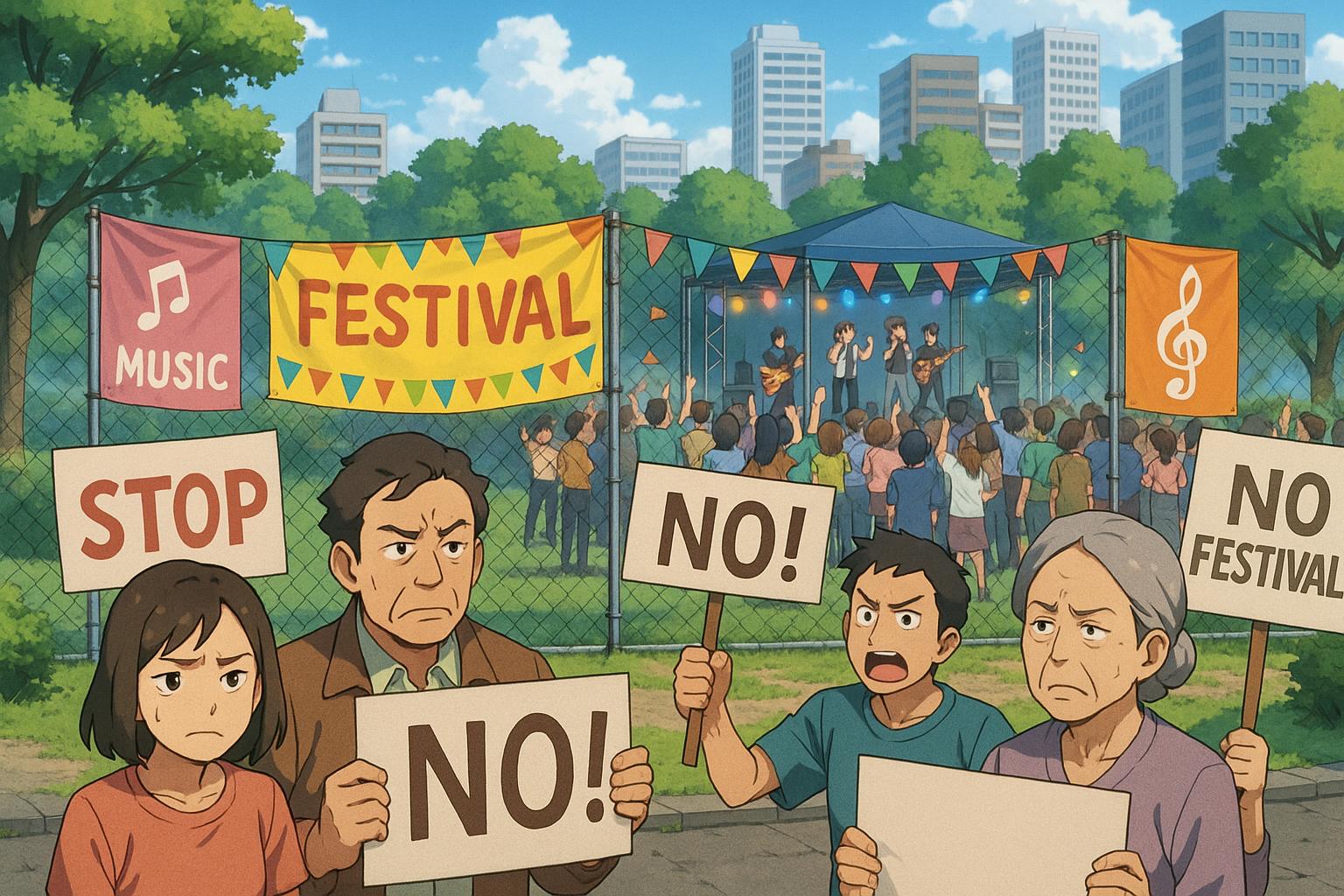In recent months, Brockwell Park in Brixton, London, has been at the heart of a contentious debate over the approval of multiple music festivals, attracting both passionate support and fierce opposition. The campaign group Protect Brockwell Park, led by Rebecca Shaman, has expressed significant frustration with the ongoing use of the park for large-scale events, which they argue compromise the park's integrity and accessibility for local residents. Despite a recent high court ruling that upheld the legality of these events, the group remains determined to challenge the situation.
The ruling indicated that the duration of festivals exceeded the standard allowance for temporary use of public spaces. Nonetheless, Lambeth Council has continued to endorse the events, recently issuing a certificate of lawfulness that allows for further festivities to occur in the park. The festivals, which commenced with the Wide Awake event on May 23, will include a diverse lineup such as Mighty Hoopla, Field Day, and the Lambeth Country Show. Each is promoted as a means to bolster the local economy, with Councillor Donatus Anyanwu emphasising the balance that must be struck between community access and cultural offerings.
However, opposition voices like Jen Hawkins from the Protect Brockwell Park group underscore a deep dissatisfaction with what they perceive as a lack of transparency in the decision-making process. Hawkins articulated a commitment to safeguarding the park, elaborating that “we feel like there has been such little transparency and such little consultation with the community. Something needs to change.” The sentiment among many locals is that the frequency and scale of the events effectively fence off public green space, raising concerns about accessibility and the implications for mental wellbeing among those without private gardens.
As tensions mount, the discussion inevitably touches on the long-term repercussions of hosting such events. Critics are concerned about soil compaction and damage to the park's ecosystem, which some residents assert has been compounded by recent festivals. Following poor weather conditions, a community event was cancelled due to the state of the park, described as "churned up" and muddy. In response, Brockwell Live, the festival organiser, has pledged to implement “additional ground protection” to mitigate damage during future events.
Indeed, while Lambeth Council has defended the festivals for their economic contributions, which reportedly include £500,000 annually towards park maintenance, detractors remain increasingly vocal about noise disturbances and potential harm to the area’s biodiversity. Residents have experienced not only disruptive sound levels but also issues such as illegal parking and increased foot traffic leading to the deterioration of the park's aesthetics.
Among the notable supporters of the campaign against festival expansion is actor Sir Mark Rylance, who described the conditions during festival setups—complete with high steel fences—as effectively turning the park into a 'prison camp.' He has called for a reevaluation of how the park is used during these gatherings, backing the legal challenge mounted against the council.
As the festivals go ahead in Brockwell Park, the balancing act between cultural events and community rights continues, drawing attention to the wider implications of such developments in urban green spaces. Proponents argue for the vibrancy these events bring to the borough, while opponents insist on the necessity of protecting public access and the natural environment. The discussions surrounding Brockwell Park epitomise the complex interplay between community empowerment and commercial interests within London's urban landscapes.
Reference Map:
Source: Noah Wire Services
